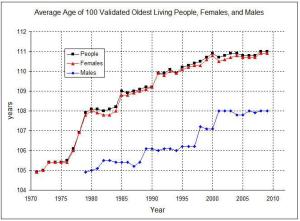Edward Hitchcock (1793-1864), noted geologist, theologian and president of Amherst College, has become, like so many of the lesser polymaths of the nineteenth century, mostly forgotten. When his name does come up, the lingering Darwinian debates are usually the occasion. But Hitchcock himself was a fascinating figure – not to mention surprisingly accurate as a scientist – as Nancy Pick uncovers in her delightful book, Curious Footprints: Professor Hitchcock’s Dinosaur Tracks and Other Natural History Treasures at Amherst College (Amherst, MA: Amherst College Press, 2006).
I too wish to investigate a new dimension of Hitchcock here: that he was very much a man of his age with regard to his evaluation of femininity. The dedication to his wife in The Religion of Geology and Its Connected Sciences (1854), read in context of the entire book, identifies femininity as a positive, spiritual force able to lift one beyond the vicissitudes of the natural, physical realm. Through his wife, Orra, Hitchcock finds romantic resources to understand death as good, and to reassert the value of geology for theological argumentation.
(For those of you wondering, no, I am not related to this particular Prof. Hitchcock. And yes, I know it smacks of vanity to study authors with the same last name. Sue me.)
Hitchcock’s bears his heart in The Religion of Geology, not least in its dedication wherein he hymns the virtues of his wife:
Both gratitude and affection prompt me to dedicate these lectures to you. To your kindness and self-denying labors I have been mainly indebted for the ability and leisure to give any successful attention to scientific pursuits. Early should I have sunk under the pressure of feeble health, nervous despondency, poverty, and blighted hopes, had not your sympathies and cheering counsels sustained me. And during the last thirty years of professional labors, how little could I have done in the cause of science, had you not, in a great measure, relieved me of the cares of a numerous family! Furthermore, while I have described scientific facts with the pen only, how much more vividly have they been portrayed by your pencil! And it is peculiarly appropriate that your name should be associated with mine in any literary effort where the theme is geology; since your artistic skill has done more than my voice to render that science attractive to the young men whom I have instructed. I love especially to connect your name with an effort to defend and illustrate that religion which I am sure is dearer to you than every thing else. I know that you would forbid this public allusion to your labors and sacrifices, did I not send it forth to the world before it meets your eye. But I am unwilling to lose this opportunity of bearing a testimony which both justice and affection urge me to give. In a world where much is said of female deception and inconstancy, I desire to testify that one man at least has placed implicit confidence in woman, and has not been disappointed. Through many checkered scenes have we passed together, both on the land and the sea, at home and in foreign countries; and now the voyage of life is almost ended. The ties of earthly affection, which have so long united us in uninterrupted harmony and happiness, will soon be sundered. But there are ties which death cannot break; and we indulge the hope that by them we shall be linked together and to the throne of God through eternal ages (iii-iv).
Hitchcock finds in his wife virtues much in line with anyone concerned with doing the science of geology: she “portrays” and “renders” nature through her artwork, which came with great “labors and sacrifices.” She has no similitude with “female deception and inconstancy.” Instead, just like the natural order itself, she has divulged her secrets and been reliable, even as reliable as the clockwork of the geological record itself.

More outstanding, in my analysis, is Mrs. Hitchcock’s super-natural virtues: that she provides cheering counsel, that she relieves her husband of cares, that she makes geology “attractive to the young men,” drawing them to the beauty of the earth by graphical portrayals. Her devoted love has been so trustworthy that Prof. Hitchcock finds in his wife a basis for immortality. Just as he looks through the geological record to find God, so he looks through his wife to discover the “ties which death cannot break.” In her and with her and beyond her lies the truth of the spiritual realm, the eternal frontier of the kingdom of God.
Trepidation in the face of death could very easily be understood as the real theme of The Religion of Geology. Hitherto Hitchcock’s literature was more plainly apologetical, following William Paley’s program of natural theology to defend Christian doctrines like the existence of God, the veracity of Genesis as pure historical fact, and the reliability of the scriptures in general. His apologetic continues in The Religion of Geology, but something has changed. He writes the book in his advanced age; medical problems have forced him to look not at, but beyond fossils and sedimentary layers in order to find assurance of eternal life. The secrets of geology, when divulged, should reveal the goodness of God. But for Hitchcock one brute fact manifests itself contrarywise: the history of the world has been a history of death. That our own physical deaths will have been preceded by billions of prior deaths suggests the great counterfactual to the goodness of God and His creation. The harmonization of the perfect benevolence of God with the existence of evil on earth “is the grand problem of theology” (248). Where is God’s purpose in the repeated extermination of every life form on earth? More to the point, Where is God’s purpose in the dissolution of the Hitchcock family? Death appears to vaunt itself as the great Dis-order in the midst of divine Order.
Hitchcock cannot draw a line between death and God’s goodness. So with regular intervals in The Religion of Geology, he appeals to a sort of transcendent reasoning, claiming that humans in their fallen condition would not be perfectly happy in a perfect, deathless world. That kind of world would be the greatest torment. Instead, God brought evil upon the creation in its natural state, giving humans “a world as is adapted for a condition of trial and preparation for a higher state, when both mind and body would be delivered from the fetters that now cramp their exercise” (110). Geology can only suggest this; faith must claim it. In this case the physical realm points beyond itself, indeed, against itself, to yield the spiritual reality. “Death shows us that we shall ere long be introduced into a second act, and affords a presumption that other acts-it may be in an endless series-will succeed, before the whole plot shall have passed before us,” claims Hitchcock. “And if thus early we can catch glimpses of great benefit to result from these evils, what full conviction, that infinite benevolence has planned and consummated the whole, will be forced upon the mind, when the vast panorama of God’s dispensations shall lie spread out in the memory!” (111). Who will deliver Hitchcock from his body of death? Oddly enough, death itself must rescue him from him from death. Only the physical enemy itself is the savior, the “essential means of delivering this immortal being from his ruin and misery” (248). In this way Hitchcock adopts the common but perverse logic of Christians of the Victorian period.
But to the point: Returning to the dedication to his wife, Hitchcock’s words about the “female deception and inconstancy” having been turned to “cheering counsels” in his wife make more sense. Femaleness as such does not reflect the spiritual. Rather, her inner, spiritual, feminine resources have made her into a glorious creature. United to her in love, knit to her feminine consolations, it is impossible for Hitchcock to imagine anything but immortality. His wife is nature’s secret: that beyond death, beyond deception, beyond the womanly body, there is eternal life. “Early should I have sunk under the pressure of feeble health, nervous despondency, poverty, and blighted hopes, had not your sympathies and cheering counsels sustained me,” says he. She has delivered him thus far, and she will guide and accompany him to his heavenly home. She patches the death-gap between creation and revelation. Verily, through her feminine talents she illustrates for him the secrets of the created order.
At first glance it seems strange that so passionate a dedication to his wife would accompany Hitchcock’s commentary on geology. I suggest that the book hardly makes sense without the dedication. In his wife the aged professor finds a feminine spirit through whom he can acknowledge the goodness of God in the face of death. He finds a woman in whom nature’s corruption is revealed to be nature’s means to immortality. Indeed, Mrs. Hitchcock frees her husband to again laud the religious value of earth science:
Misunderstood or misinterpreted though this science has been, [geology] now offers her aid to fortify some of the weakest outposts of religion. And thus shall it ever be with all true science. Twin sister of natural and revealed religion, and of heavenly birth, she will never belie her celestial origin, nor cease to sympathize with all that emanates from the same pure home. Human ignorance and prejudice may for a time seem to have divorced what God has joined together. But human ignorance and prejudice shall at length pass away, and then science and religion shall be seen blending their parti-colored rays into one beautiful bow of light, linking heaven to earth and earth to heaven (177-8).




 In her fascinating book Pythagoras’ Trousers, Margaret Wertheim makes the claim that most physicists are male to this day because physics, like organized religion, deals with a knowledge of the “magical” core of the universe. On a more mundane level, I got to wondering why men often proliferate as magicians (the entertaining sort). It turns out that 95% of magic club membership is male. Why?
In her fascinating book Pythagoras’ Trousers, Margaret Wertheim makes the claim that most physicists are male to this day because physics, like organized religion, deals with a knowledge of the “magical” core of the universe. On a more mundane level, I got to wondering why men often proliferate as magicians (the entertaining sort). It turns out that 95% of magic club membership is male. Why?